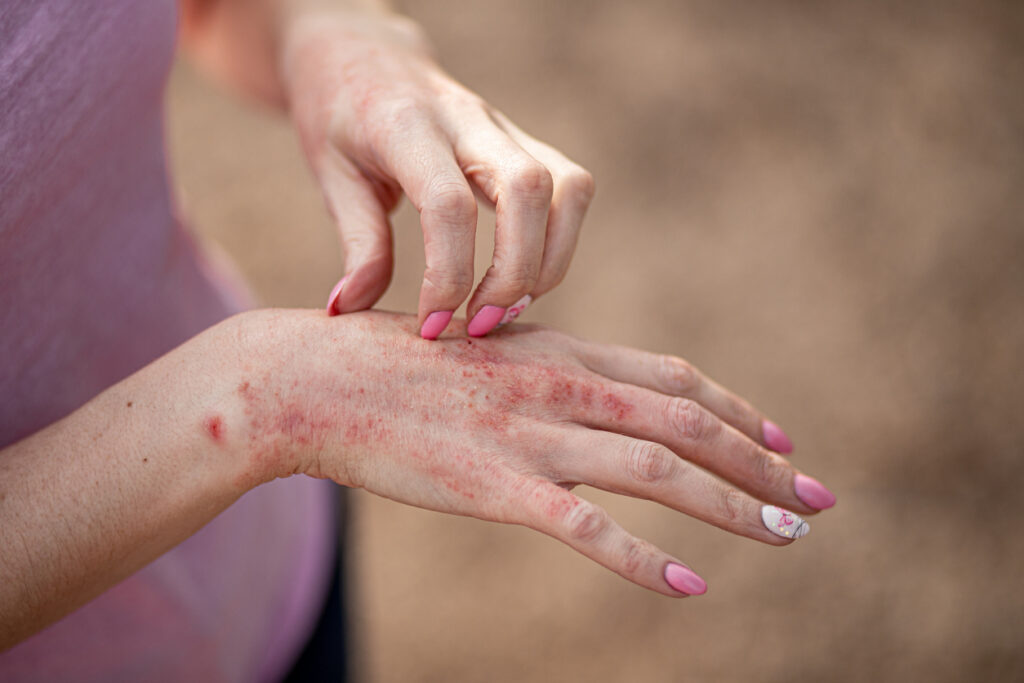Chronic hand eczema (CHE) is common, with 5.6% of adults self-reporting CHE in the last 12 months, according to new data from Leo Pharma presented at the European Society of Contact Dermatitis (ESCD) congress in Dresden, Germany.
Four posters present data from CHECK (Chronic Hand Eczema epidemiology, Care, and Knowledge of real-life burden), a large multinational, prevalence study of CHE. CHECK was conducted among 60,131 adult participants from the general population in France, Spain, Italy, Germany, Canada, and the UK. The data from CHECK is supported by the findings in the RWEAL (Real-World trEatment & mAnagement of chronic hand eczema in cLinical practice) study, which examined the physician-reported treatment patterns in CHE, a medical chart review of 1,939 patients, involving 292 physicians from Canada, Germany, France, Italy, Spain, and the UK. Historically, data relating to the prevalence of CHE and treatment options has been limited.
CHE: By the numbers
Overall, 4.7% of participants in CHECK reported physician-diagnosed CHE.
An additional CHECK poster found that CHE is burdensome disease and has a direct impact on occupation, leisure time, and overall daily life of individuals with CHE. Among participants who self-reported CHE (n=2,330), one in five attribute their disease to their occupation, and almost one in three to their household/leisure activities, the study showed.
“The heavy burden of chronic hand eczema is well understood but prevalence has been historically understudied in the general population,” says study author Professor Sonja Molin, chair of the Division of Dermatology at Queen’s University in Kingston, Ontario, Canada. “Large-scale, multinational studies like CHECK provide powerful insights to help us better understand this debilitating disease.”
Further analysis assessed participants with physician-reported CHE (n=1,948) and found that symptoms persisted across all treatment groups, indicating an unmet treatment need in this population despite the majority of participants receiving treatment.
RWEAL Results: Data from physician-reported outcomes
The RWEAL poster found that the use of medium, high, or ultra-high potency topical corticosteroids (TCS) was reported in more than 90% of moderate to severe CHE patients. More than one-in-four patients with moderate to severe CHE had progressed to phototherapy or systemic therapy, oral immunosuppressants, and biologics, the study showed.
A symposium titled “Dear Diary: Chronic Hand Eczema in the patients’ words*” is also scheduled to shed more light on the CHE experience through the words of patients.
Delgocitinib cream: An update
Three encore posters were also presented on the latest phase 3 clinical trial results from the DELTA 1, 2, and 3 studies of Leo Pharma’s delgocitinib cream, an investigational topical pan–Janus kinase inhibitor that inhibits activation of the JAK-STAT pathway. It is under investigation and has not been approved by any health authority.
Europe’s Committee for Medicinal Products for Human Use (CHMP) recommended marketing authorization for delgocitinib to treat moderate to severe chronic hand eczema in adults when topical corticosteroids are insufficient in July 2024. A final decision from the European Commission is now pending. The U.S. Food and Drug Administration (FDA) has granted Fast Track Designation to delgocitinib cream (LEO Pharma) for the treatment of adult moderate-to-severe CHE.


